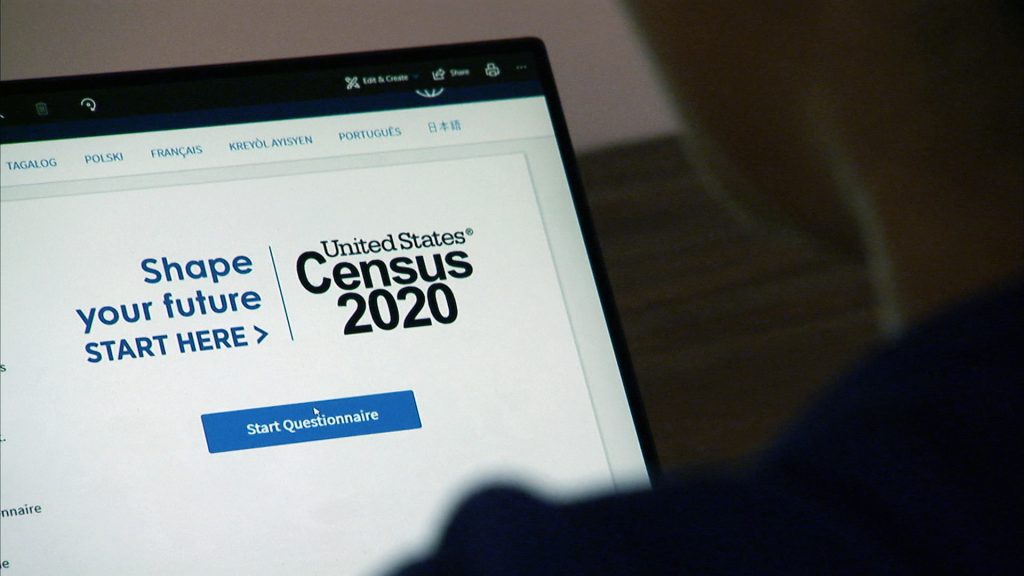As Census Wraps, These Michigan Women Won’t Let Their Communities Go Uncounted
The COVID-19 pandemic added another challenge onto the already difficult task of counting low income and immigrant communities. WDET assembled a women’s roundtable to find out how they’re responding.

A federal judge ruled Thursday that the 2020 census count must continue through the end of October after the Census Bureau shortened the timeline for the national headcount. The Justice Department is expected to appeal.
Billions of dollars in federal funding in the next decade is at stake, as well as countless programs that rely on census data. Michigan is sixth in the nation with a self-response rate of 70.8 percent. But cities like Detroit, Highland Park and Hamtramck remain at the bottom of state rankings with response rates under 60 percent.
“If we’re not counted, we’re not being seen. Our stories can’t be told. Our histories can’t be documented.” — Gabriela Santiago-Romero, participant
Nargis Rahman is a Bangladeshi American Muslim writer. She noticed that minority women often play a role in spreading awareness about the census in semi-private spaces like WhatsApp groups and Facebook. Crucially, these women were not part of the wider conversation she heard around census outreach efforts.
Related: Michigan residents, take the 2020 U.S. Census online here.
“Oftentimes [Black, indigenous and people of color] women are left out of important conversations, including when it comes to the census,” Rahman says. “As a minority reporter, I recognize that women have valuable insight in the communities they identify with.”
WDET hosted a roundtable concerning the census moderated by Rahman and WDET’s Sascha Raiyn. Seven participants joined the discussion.
Listen: Detroit-area women talk about the importance of the census count, success strategies and outreach during a pandemic.
Risks of an undercount
Immigrant and lower income communities are at risk of being undercounted.
Language accessibility, a lack of understanding about the purpose of the count and the COVID-19 pandemic has hampered this year’s census.
“I think that response rates would be higher in our communities if we had been able to do direct outreach in the way that a door conversation happens.” — Aamina Ahmed, participant
“I think that response rates would be higher in our communities if we had been able to do direct outreach in the way that a door conversation happens,” says Aamina Ahmed on her experience leading native language or culturally competent canvassers. “It’s not really safe to do that during a pandemic.”
And a low count can limit representation in unexpected ways.
For instance, when the COVID-19 pandemic began in early March, Mehruba Akhtar, like many Michiganders, sought out reliable information on the virus and governmental response from the state.
“We were trying to relay this information to the Bangladeshi community [and] we saw there was no materials translated into the Bangla language,” says Akhtar.
“I took the strategy of talking to my dad and getting him to call all of his friends. I even ended up helping some folks.” — Fatema Haque, participant
Michigan.gov does not generally provide information in Bangla, sometimes known more generally as Bengali, which about 26,000 Michiganders speak, 16,000 of whom report speaking English less than “very well,” according to the American Consumer Survey 2019 1-year estimates.
A spokesperson for the Michigan Department of Health and Human Services says language access for COVID-19 related materials has been expanded as the pandemic has continued. But Akhtar says limited representation like this is one example of the harms an undercount can cause.
Creative outreach
Some participants leaned on community outreach.
“I took the strategy of talking to my dad and getting him to call all of his friends,” says Fatema Haque, who also reached out during COVID-19 wellness checks. “I even ended up helping some folks [fill it out].”
Gabriela Santiago-Romero says she will adopt a sense of friendly competition around census outreach efforts, inspired by her Councilperson Raquel Castañeda-López’ efforts to increase district self-reporting.
“Things are really hard right now, and to put this [ourselves] for not filling it out, I think is really heavy,” Romero says. “So instead of doing that, I’m going to say, how can we make this fun?”
Updated, Sept. 25: This story has been updated with details about the changing concluding date for the 2020 U.S. Census count.
Trusted, accurate, up-to-date
WDET is here to keep you informed on essential information, news and resources related to COVID-19.
This is a stressful, insecure time for many. So it’s more important than ever for you, our listeners and readers, who are able to donate to keep supporting WDET’s mission. Please make a gift today.
